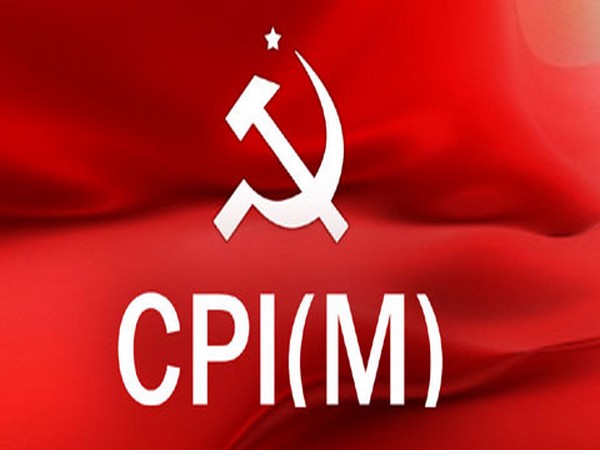LIES THAT THE COMMUNISTS SAY
- By : Anirban Ganguly
- Category : Articles

It is indeed laughable to hear the communists say that the BJP is trying to worm its way into the country’s freedom struggle saga. The communists were in the forefront in opposing various movements that had been launched, even at times aligning with Jinnah
Comrade Sitaram Yechury, or “comrade Sita” as he is known among his acolytes, the other day observed in Parliament — in keeping with the tradition of perpetuating dialectical falsehoods that his party has mastered — that the BJP “was trying to worm its way into the freedom movement”. Coming from one of the top leaders of a party that has always and unflaggingly opposed the freedom movement and had initially termed India’s hard-won freedom as a “false freedom”, such a comment is indeed rich. The communist legacy of negativity and betrayal in India, especially during the freedom struggle and immediately after that, is so rich that it would require a multi-volume space to document and narrate that history. So unique is this history that one finds it difficult to explain it through a rational matrix.
Two examples may be relevant at the outset. When MA Jinnah declared that his Muslim League would resort to ‘Direct Action’ on August 16, 1946, Indian communists adopted a uniquely dialectical position. The Muslim League gave a call for a bandh on that day in Calcutta and the League Chief Minister of Bengal, HS Suhrawardy declared a holiday in the State with the obvious intent of facilitating thebandh and all that comes with it. But the communists displayed a reverse sagacity that was hard to match, as scholar and researcher Shantanu Singha writes in his monograph on Noakhali, the leader of the CPI in the Bengal Assembly, comrade Jyoti Basu, in a Press release declared — displaying the quintessential dialectical vision that eventually succeeded in duping many for decades — that “the CPI would try to keep the State peaceful on that day, with a strike where necessary and without a strike where necessary”. Interestingly while supporting Jinnah’s demand for Pakistan, the communists argued that secession, far from dismembering the country, would “lead to still greater and more glorious unity of India, the like of which India has not seen in her history”. Rarely has any party shown, except perhaps the Congress at times, such an understanding of Indian conditions!
As an aside, it would be useful to point out the disdain with which Jinnah looked upon the communist and their fawning support for his project. He found the communists to be the “cleverest party” that was carrying on propaganda. He snidely referred to the many flags — the Soviet flag, the Red flag, and the Russian flag — that the communists were adept at waving. Now, he observed, they were waving the League flag — which suited him. But then, warned Jinnah, he was suspicious of anyone who waved too many different flags!
Another example serves as a stark reminder of how Indian communists opposed every leader who espoused the cause of India or spoke from the perspective of Indian nationalists. In his opus on the refugee and the Left movement in West Bengal, Prafulla Chakrabarti points out how, when towards the end of 1952, Syama Prasad Mookerjee demanded economic sanctions against Pakistan for its role in persecuting Bengali Hindus in its eastern flank and for pushing them out as refugees, the CPI was quick to organise a meeting on October 18, 1952, at Calcutta’s Wellington square, where participants chanted slogans against the nationalist Mookerjee.
Interestingly, some of those who marched in this communist procession were the ones who had just become refugees by escaping persecution in East Pakistan but who could not escape the snare of dialectical hypnotism which turned them, overnight, into unthinking and irrational comrades who excelled and outdid one another in celebrating far-off world revolutions rather than trying to ameliorate their immediate physical condition and crisis of identity at home. The communist had succeeded in creating just such automatons that would plunge with zeal in order to carry forward the hazy agenda of a proletarian revolution.
Unlike the communists and their leaders who had never sided with India’s struggle for freedom, the RSS and its leaders were involved with it at various points of time. Thousands of RSS workers, in various walks of life, participated in the struggle. In 1929, the RSS welcomed the Purna Swaraj resolution of the Congress in Lahore, with each of its shakhas sending a congratulatory message to then Congress president Jawaharlal Nehru.
This episode is something that Mr Rahul Gandhi’s communist instructors and mentors never taught him for the fear perhaps of being asked — if one were capable of asking cogent questions — as to what was the communist reaction to the Lahore resolution. In 1930, the RSS, then still largely confined to the Nagpur area, also actively participated in the non-cooperation movement. During the Quit India movement of 1942, while communists were actively collaborating with their British masters and calling those who were activating the call for ‘Quit India’ as traitors, hundreds of individual swayamsevaks were active in trying to ensure the success of the movement.
Much before many of these episodes, RSS founder KB Hedgewar was himself an active member of the revolutionary circles in Bengal and later in the Congress. In Bengal, in the first decade of the last century, Hedgewar joined the Anushilan Samiti and was active in core groups of the web-like revolutionary organisations that permeated that region. His association with revolutionaries like Pulin Behari Das and others are documented but insufficiently disseminated. Be it noted that only those who displayed a fearless commitment to achieving India’s freedom and who demonstrated an iron will of discipline, organisation and secrecy were admitted to the inner circles of this revolutionary web.
Hedgewar had quickly endeared himself to this section. The 1920 Nagpur session of the Congress that passed the non-cooperation resolution, which saw over 3,000 members of the reception committee, nearly 15,000 delegates and 7,000 to 8,000 spectators converge also saw Hedgewar, as leader of the volunteer corps, successfully manage and steer the entire logistical challenge. Following the Congress session, he launched himself into a hurricane tour to popularise and organise movements centering on the new resolution of non-cooperation; this outreach eventually saw him being persecuted and arrested for sedition in May 1921.
Hedgewar’s words in his defence generated a wave; many recalled his speech as an “electrifying experience”. He told his trial judge: “India belongs to Indians”, adding, “We, therefore, demand independence. This is the content of all my speeches. People have to be told how to secure independence, and also how to conduct themselves after securing it…What law is there that gives one country the right to rule over another? I am asking you, the counsel for Government, this simple and straight question. Can you answer it? Is not against natural justice? If it is true that no country has a right to rule over another country, who gave the British the authority to trample the people of India under their feet? How can they enslave us and declare that they own this country? Is it not the most blatant murder of justice, morality and dharma? …Our mind revolts at the thought of remaining the slaves of the British Empire and carrying that stigma for all time. We demand nothing short of complete independence. Till we achieve it we cannot be at peace…”
Words such as these, which every Indian communist would cower to utter, did indeed enthuse the rank and file of the Congress in the region.

















